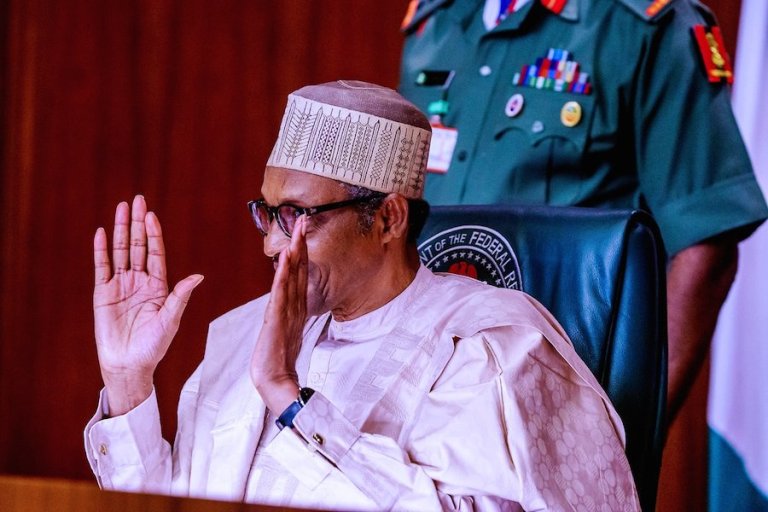Politics
Ganduje’s resignation: Rebalancing power, safeguarding 2027, by Dauda Adamu
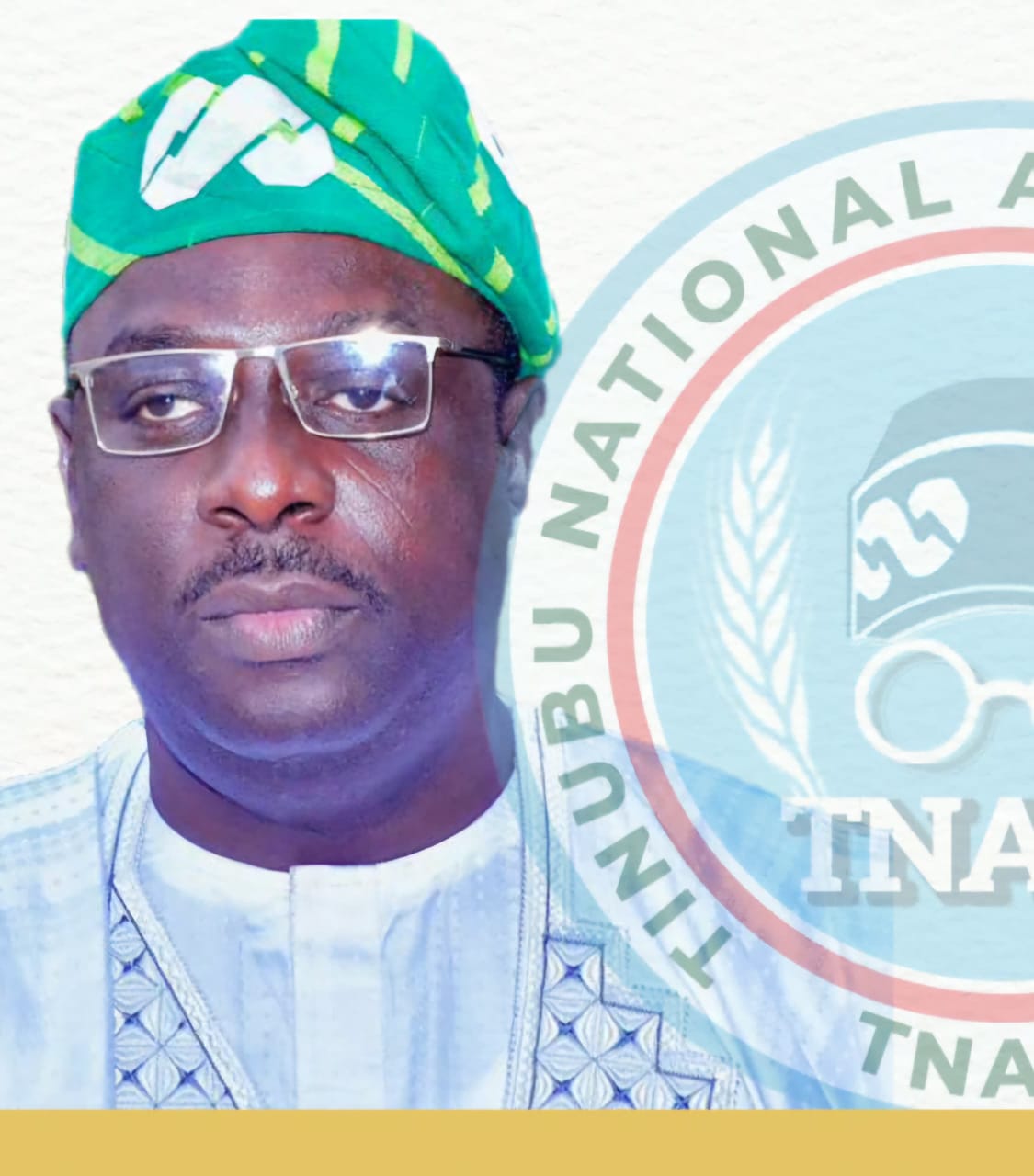
President Bola Ahmed Tinubu, GCFR, remains a political force whose candidacy in 2027, by tradition and strategic logic, should stand unopposed within the APC. As a tested product with a legacy of bold reforms and national reach, he possesses the political capital to sell himself beyond party lines. Yet, while incumbency offers a natural advantage, unresolved internal controversies and regional dissatisfaction could undermine the party’s cohesion and threaten even the strongest ticket. The President must, therefore, move swiftly to stabilize the APC, reaffirm party unity, and silence doubts before they metastasize in threats.
The historic political resignation of Dr. Abdullahi Umar Ganduje, CON, as National Chairman of the All Progressives Congress (APC), *signals a critical turning point for Nigeria’s ruling party. While officially attributed to “health reasons,” the timing, background, and unspoken tensions surrounding his exit suggest otherwise.
Ganduje’s departure is neither sudden nor unconnected to previous power plays; it is the cumulative outcome of persistent grievances, internal resistance, regional power shifts, and calculated withdrawals within a party that is increasingly torn between consolidation and implosion.
To fully understand the implications, one must revisit the chronology of unfolding events within the APC post-2023 elections. The party emerged victorious yet inherited an already divided house—patched together by electoral urgency but fractured by long-standing structural and ideological gaps. The seeds of internal conflict were sown immediately after the victory.
Ganduje’s appointment in mid-2023 was more than a mere substitution of leadership; it was a clear political statement by the inner circles of the new presidency. As a former Kano governor and trusted northern ally of President Tinubu, Ganduje was seen as both a reward for loyalty and a shield to keep the party’s internal machinery aligned with the presidential mandate. But this singular act disrupted a fragile geopolitical consensus within the party. It disregarded the North-Central zone, which, having just lost the national chairmanship through Senator Abdullahi Adamu, felt humiliated and politically displaced. What should have been a unifying reward became a triggering imbalance.
The North-Central’s protest was not loud initially, but it was deeply rooted. In every party convention, caucus discussion, and stakeholder meeting, a recurring grievance echoed—the erosion of zoning principles, the neglect of a strategic region, and the imposition of leadership without proper consensus. The region’s political influence, spanning states like Kwara, Kogi, Benue, Niger, Nasarawa, and Plateau, makes it indispensable in Nigeria’s electoral mathematics. Its silent resentment became an undercurrent that weakened the party’s cohesion in middle-belt politics. Ganduje, perceived as a partisan placeholder of the North-West establishment, never quite won over this bloc.
But zoning was only one layer of the crisis. A more dangerous dynamic began to unfold within the northern political architecture of the APC: a silent battle for dominance between the North-West and the North-East. This tension reached a symbolic climax during the infamous Gombe 15th episode; a party event in the North-East where Nigeria’s sitting Vice President, Senator Kashim Shettima, was visibly marginalized. That public humiliation was no accident. It was a deliberate political act by actors who believed that the Vice President’s rising profile poses a threat to old northern power arrangements
It is important to note that Shettima is not just a ceremonial deputy. He is a strategic political figure with a proven electoral record, deep northern credentials, and the intellectual gravitas to rally both youth and elite around the Renewed Hope agenda.
Any attempt to undermine him is, by implication, a move against the stability of the presidency itself. The Gombe incident wasn’t just an insult—it was a warning shot, and Ganduje’s resignation shortly after only confirms that the centre of power within the APC is being contested fiercely
The corruption allegations hanging over Ganduje; both from his time as Kano governor and now within the party—provided a convenient pretext for internal actors to force his exit. But if truth be told, those allegations had long been tolerated for political expediency. What changed was not the gravity of the accusations but the shift in strategic necessity. Once a loyal defender becomes a liability or obstacle to a broader realignment, the system finds a diplomatic way to dispense with him. That is what we have witnessed.
Yet this presents a rare opportunity for President Bola Ahmed Tinubu to assert authority and reshape the APC for the road ahead.
The President must now read the moment with the precision of a tactician and the foresight of a statesman. The future of his administration, and by extension the APC, rests on how he manages this critical transition.
He must restore regional balance by responding decisively to the North-Central agitation.
The chairmanship position must return to that zone—not just for peace, but to re-legitimize the APC’s internal equity formula.
Doing so will reinvigorate political engagement in a region that has begun drifting toward the opposition due to perceived marginalization.
Second, the President must defend and reposition the Vice President. Shettima’s loyalty is unquestionable, and his influence in the North-East is unmatched. His office should be visibly empowered—not just with ceremonial assignments, but with tangible roles in policy, party leadership, and national unity drives. A strong Tinubu-Shettima bond must be reasserted, not as rhetoric but as institutional practice.
Third, the party must purge the perception of selective justice. If Ganduje’s resignation is being quietly celebrated as a cleansing, it should not end with him. A transparent audit of the party’s finances, administrative processes, and leadership accountability is necessary—not as a media stunt, but as a moral reset. Only then can the APC rebuild credibility before the Nigerian electorate.
Fourth, President Tinubu must reconcile estranged stakeholders—especially those whose political relevance is tied to party survival. Former governors, ex-ministers, party financiers, and grassroots mobilizers who feel sidelined must be re-engaged. The likes of Rotimi Amaechi, Nasir el-Rufai, Yahaya Bello, and others may not always align ideologically, but their electoral value is undeniable. APC cannot afford to go into 2027 fractured.
Finally, there is a need for visionary leadership at the party level. The next National Chairman must be more than a loyalist; he must be a bridge-builder, a competent administrator, and a leader who commands respect across zones. The party needs a chairman who will energize the base, communicate the President’s vision effectively, and interface with public sentiment in a way that reflects integrity and maturity.
The strategic timeline of the APC’s internal crisis is clear. From Ganduje’s controversial appointment in 2023, to the growing North-Central resentment, the Gombe humiliation of Shettima in June 2025, and now Ganduje’s forced exit, we see a sequence of calculated moves and shifting power balances. What comes next will either reposition the party or push it toward a path of self-inflicted defeat in 2027.
For President Tinubu, this is not just about controlling the party—it is about preserving the mandate he fought so hard to earn. APC must rise above transactional politics and evolve into a platform of discipline, inclusion, and delivery. That is what the Nigerian people are watching for. If the right lessons are drawn from Ganduje’s fall, and if the presidency takes this moment to rewire the party structure and renew public confidence, then APC still has a path forward.
But if the signs are ignored, and old politics continues to dictate new realities, then the resignation of Ganduje may be remembered not as a political correction but as the first major crack in the wall.
-
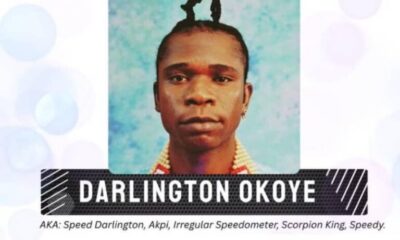
 Crime and Law1 day ago
Crime and Law1 day agoBreaking: NAPTIP declares singer Speed Darlington wanted
-
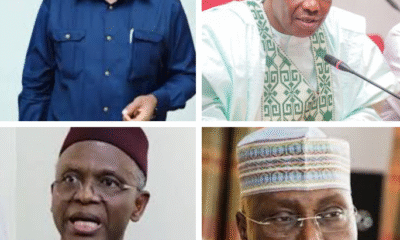
 Politics2 days ago
Politics2 days agoExclusive: Atiku, Tambuwal, others to lead 70% members out of PDP next week
-
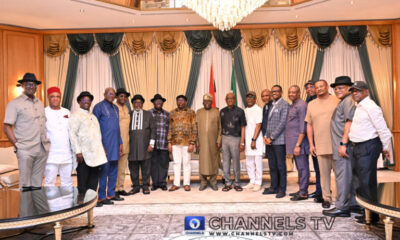
 Politics1 day ago
Politics1 day agoRivers crisis: Tinubu steps in, meets Fubara, Wike, lawmakers
-

 National News1 day ago
National News1 day ago“I’m not a mugun”: Tricyclist says as he returns ₦4 million forgotten by passenger (Video)
-
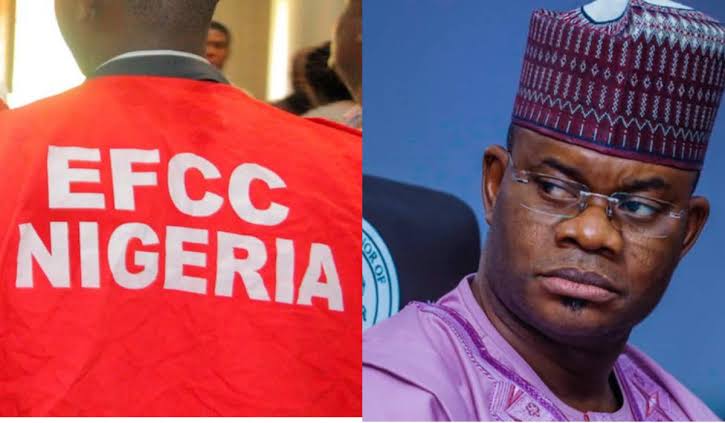
 Crime and Law1 day ago
Crime and Law1 day ago₦80.2bn fraud: EFCC kicks as Yahaya Bello seeks medical travel abroad
-
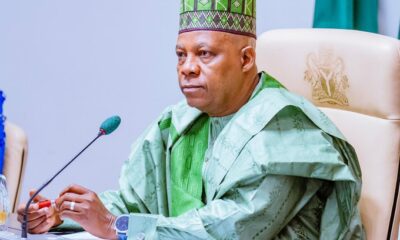
 Politics2 days ago
Politics2 days ago2027: APC chieftain urges Shettima to resign
-
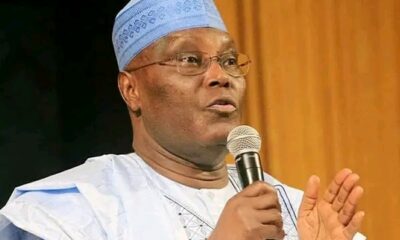
 Politics1 day ago
Politics1 day agoBreaking: Lagos PDP leaders to join Atiku’s Coalition, confirms Discoverer Nigeria’s report
-
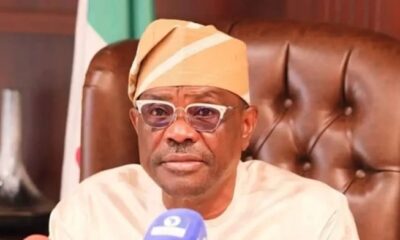
 National News1 day ago
National News1 day agoWike’s aide denies report alleging minister allocated land to son


